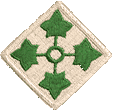
GUILD OF LINGUISTS - LESSON 2

The 'infinitive' of the verb.
The basis for conjugation is the infinitive of the verb that is also given in the vocabulary part. In this part we'll use the word glo = to start to show the conjugation scheme. You will also find the infinitive as "b'" + the form from the vocabulary list.
The infinitive is also used as a standard form when the actor is me (1st person) and the action takes place now (present tense). So, "glo" means "to start" or "I start".Changing the actor with suffixes.
As soon as another person, he, you, or they, is the actor, we have to change the verb. This is done by appending a certain suffix defining the actor. For example, the grammatical rule if he/she/it acts (3rd person) is to append "-ehn". To express "he starts", you would have to say "glo-ehn".
Those suffixes exist for each possible actor, as yo see in this table:
1st person none (infinitive) I start glo 2nd person -ehm you start gloehm 3rd person -ehn he/she/it starts gloehn 1st person pl. -eht we start gloeht 2nd person pl. -tee (*) you start glotee 3rd person pl. -eet (*) they start gloeet
* You have not yet learned the letter "ee", but I think the list must be completed.Nouns with a definite article (the)
The normal form of the noun, as given in the vocabulary part, is not used so often. Mostly, the noun is combined with a definite article, like "the" in English. This article is "reh-" in D'ni, and as you can see from the dash, it is used as a prefix to the noun. For example, "the master" is "rehnahvah", the guild is "rehtehl" and so on.Sentences with actor and verb.
Like in English, the actor normally stands before the verb (D'ni word order is quite similar to English in general). We can finally make the first sentence:
rehnahvah sehlehn. = The master writes.
The "reh-" prefix is necessary here; "-ehn" is the suffix for 3rd person sing.
And one more, in the other direction:
Gehn writes the age 233. = Gehn sehlehn rehsehv 233.Adjectives.
The adjectives are not changed at all. They are placed after the noun they define:
the great master = rehnahvah gahroThis is enough grammar for now. But you can increase your vocabulary with the following new words:
Verbs.
glas = to drink
kro = to move
lahsah = to seal
shehnto = to take
torn = to spit
Nouns.
gahn = empire
gahlon = ground
korvahk = linking book
lehsh = rule
shorah = peace; greeting 8-)
tehs = group
tehr = tree
vog = natureAdjectives.
kahg = original
kehra = braveSummary
- The infinitive is also used for the first person present tense.
- The actor is defined by a suffix to the verb.
- The definite article is "reh-", used as a prefix to the noun.
- Adjectives stand after the noun.
You can proceed to lesson 3 now.